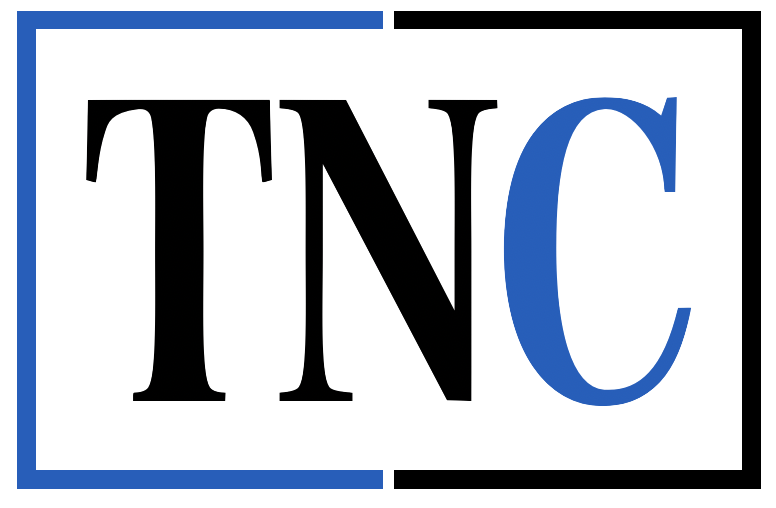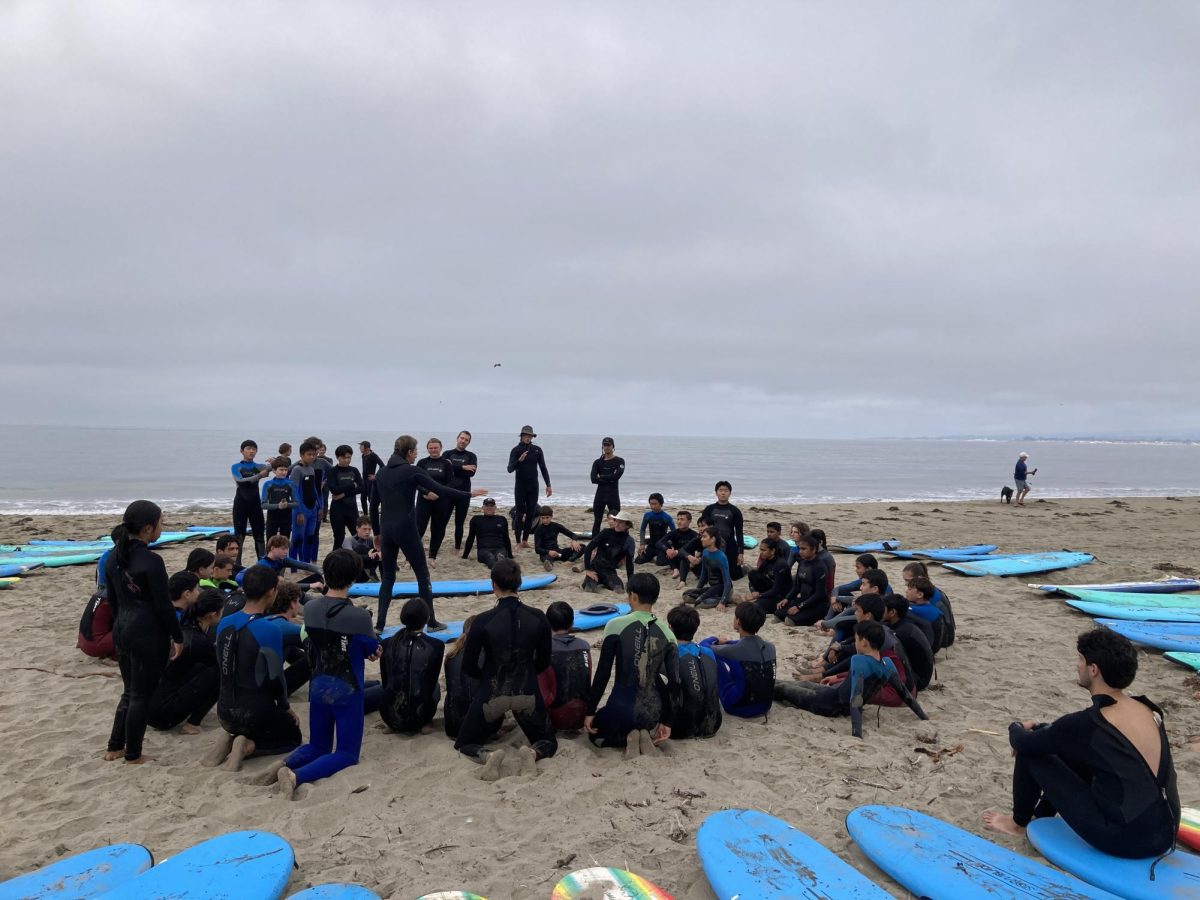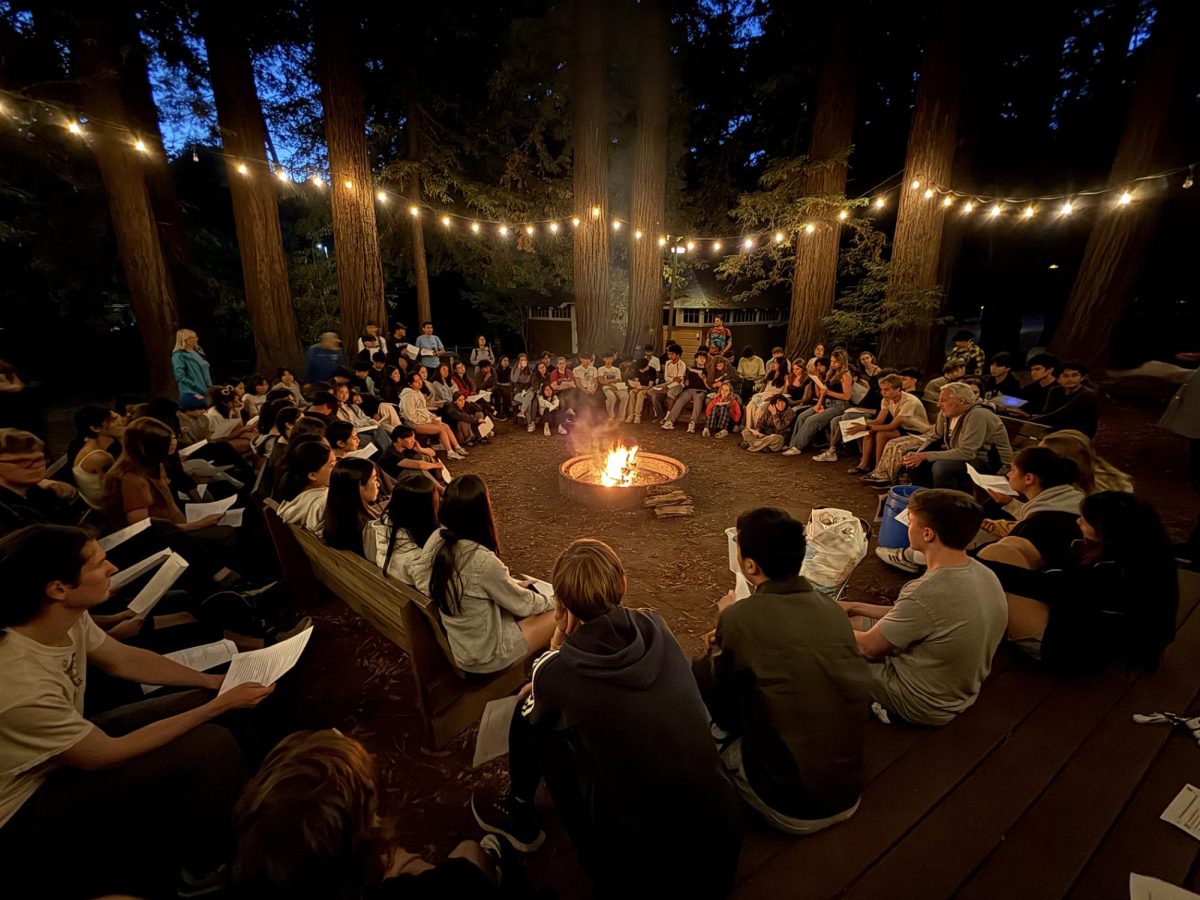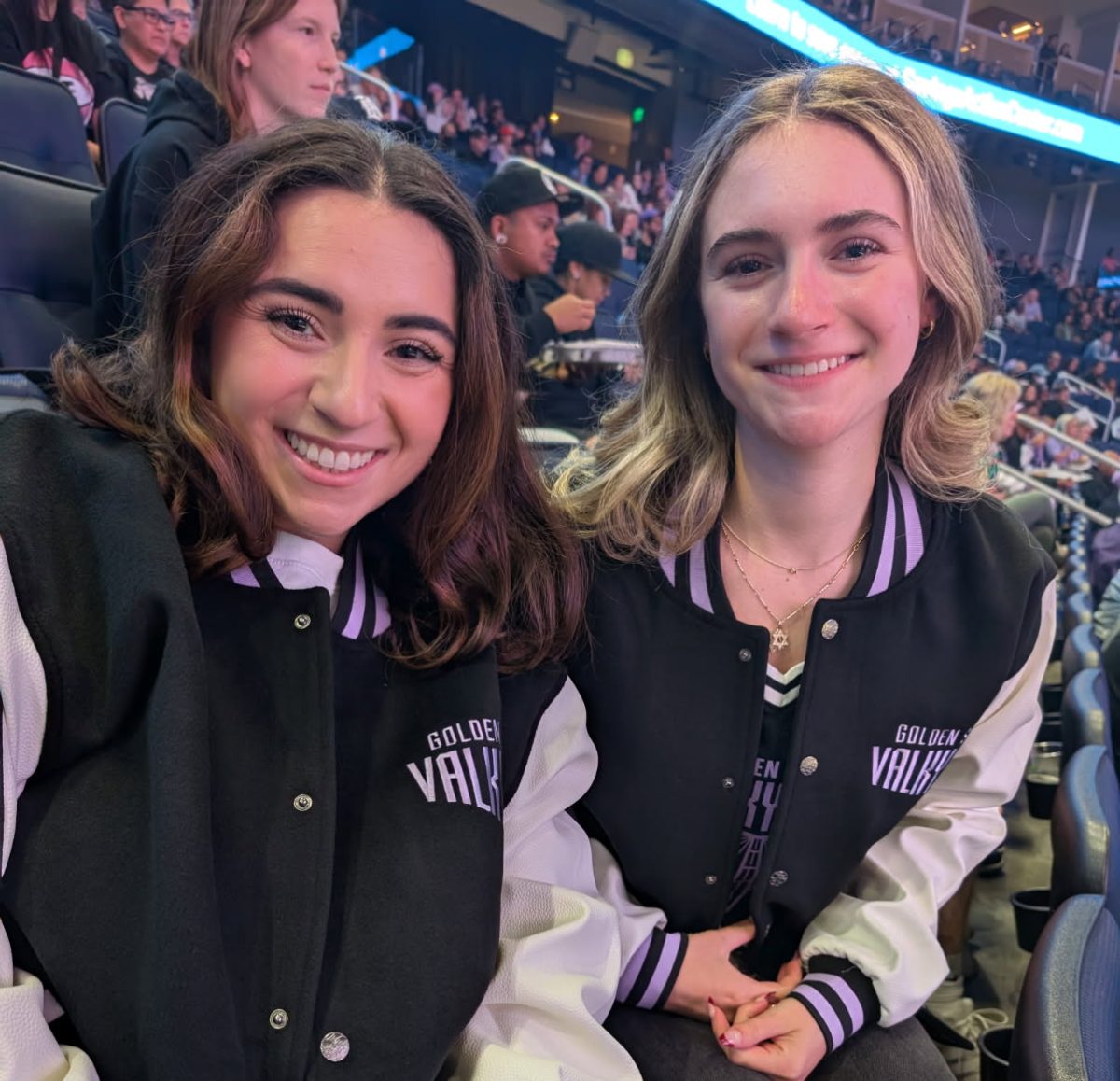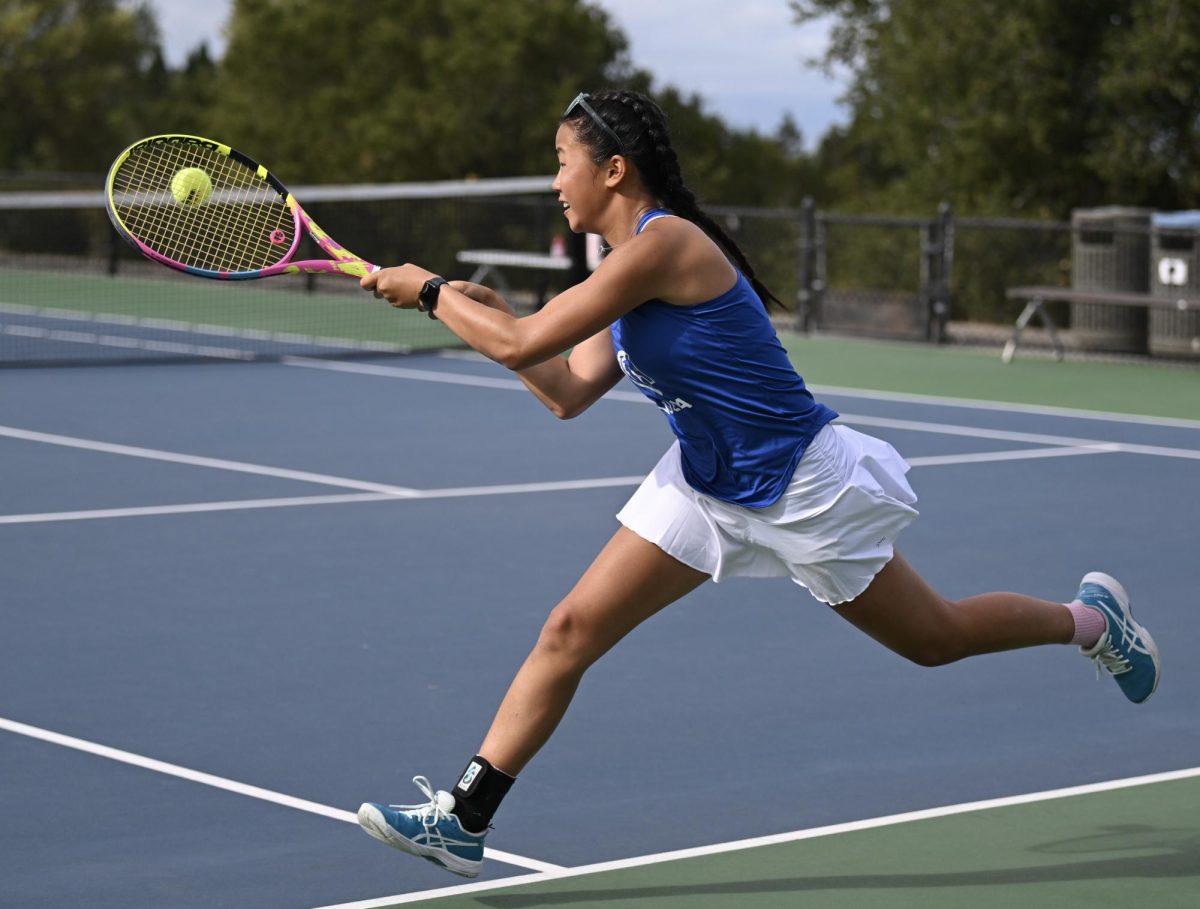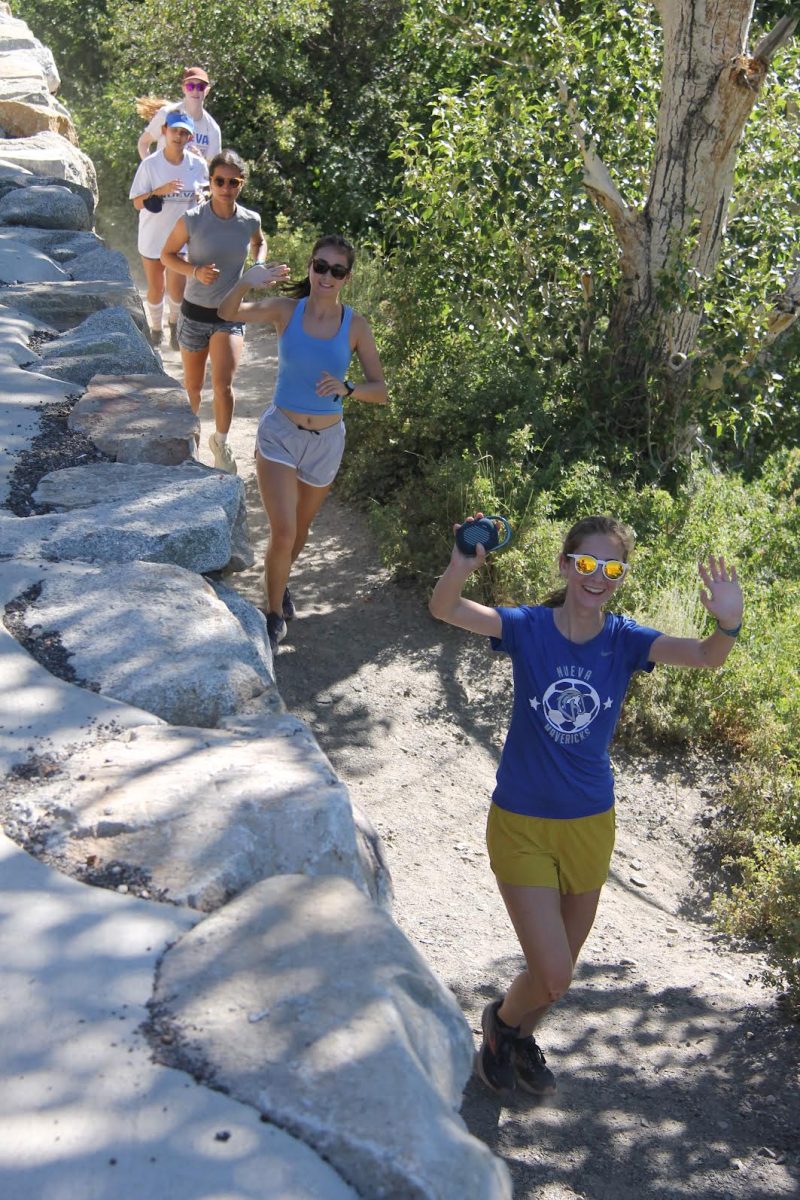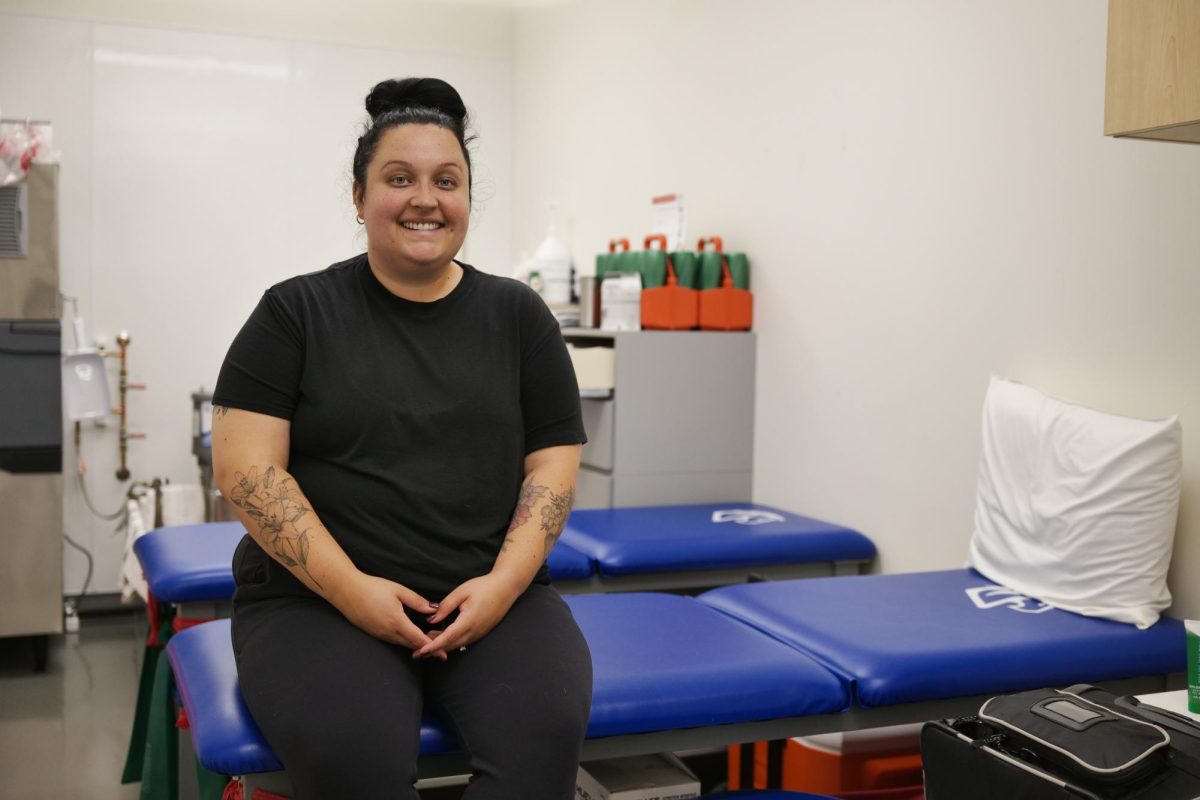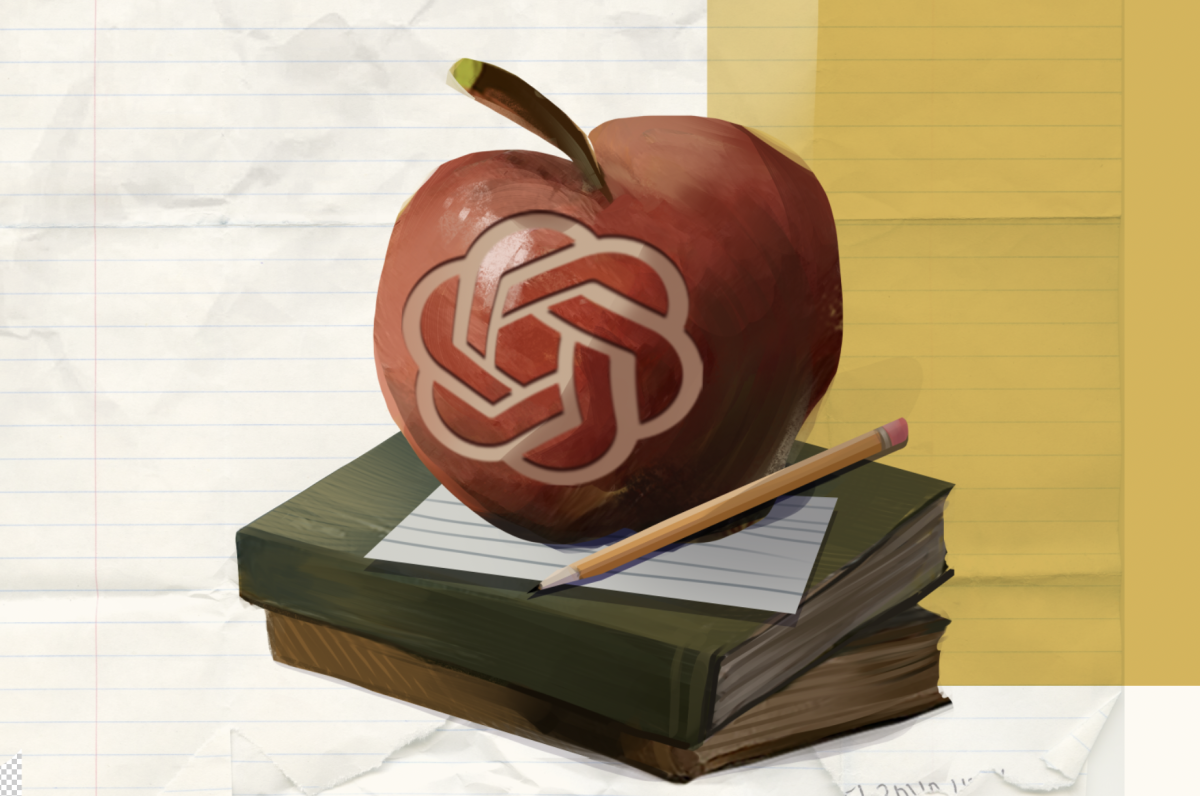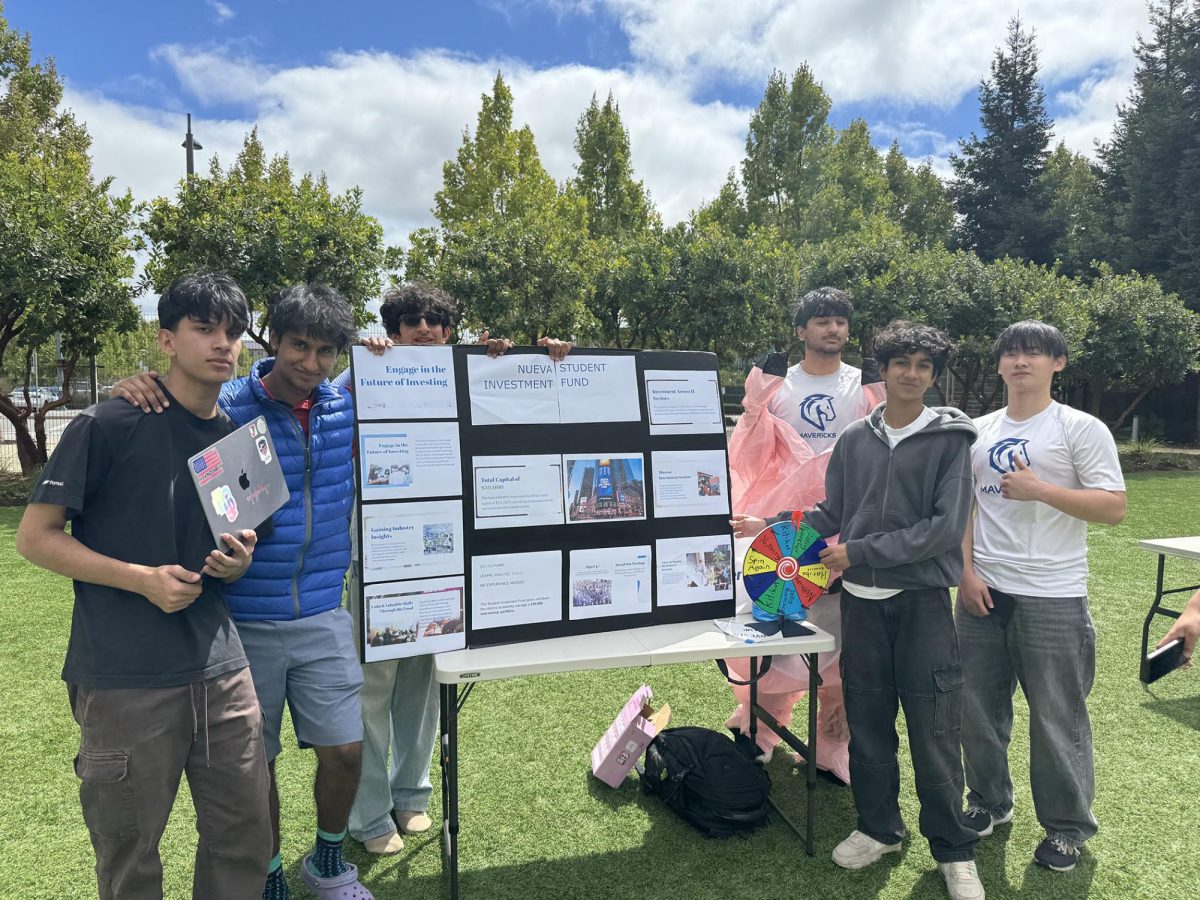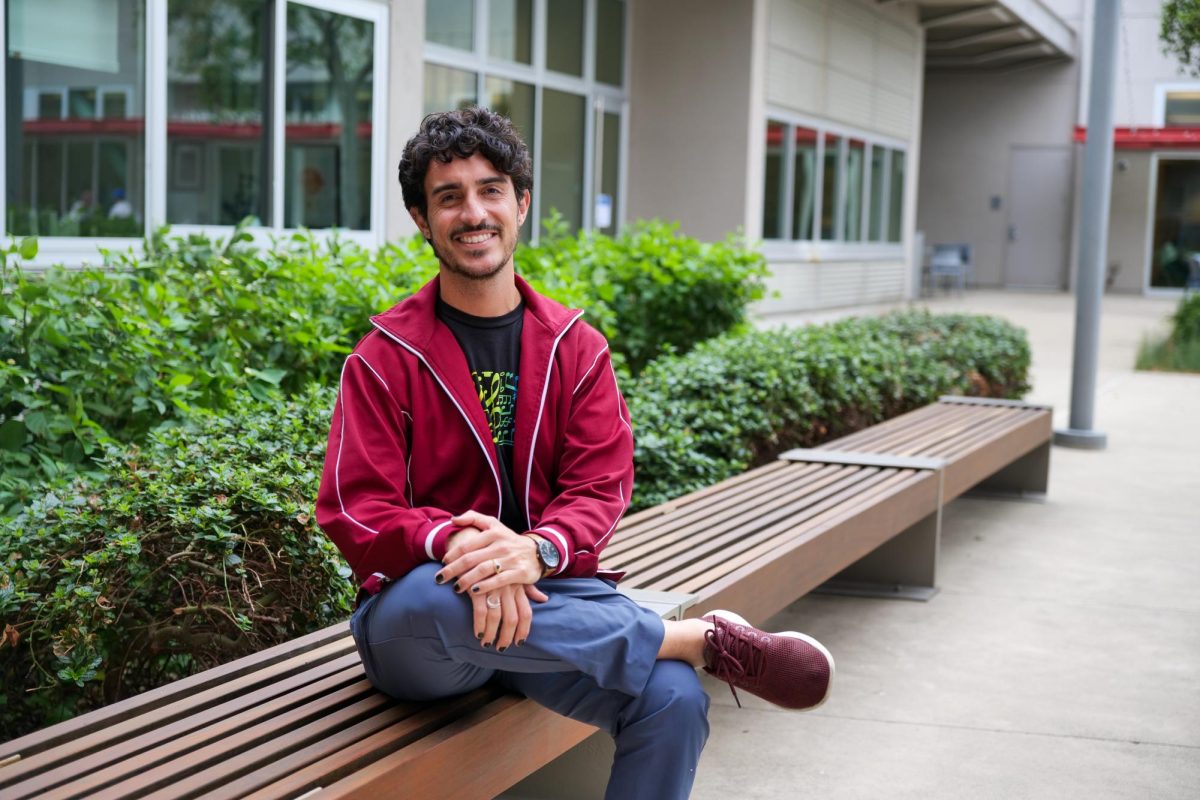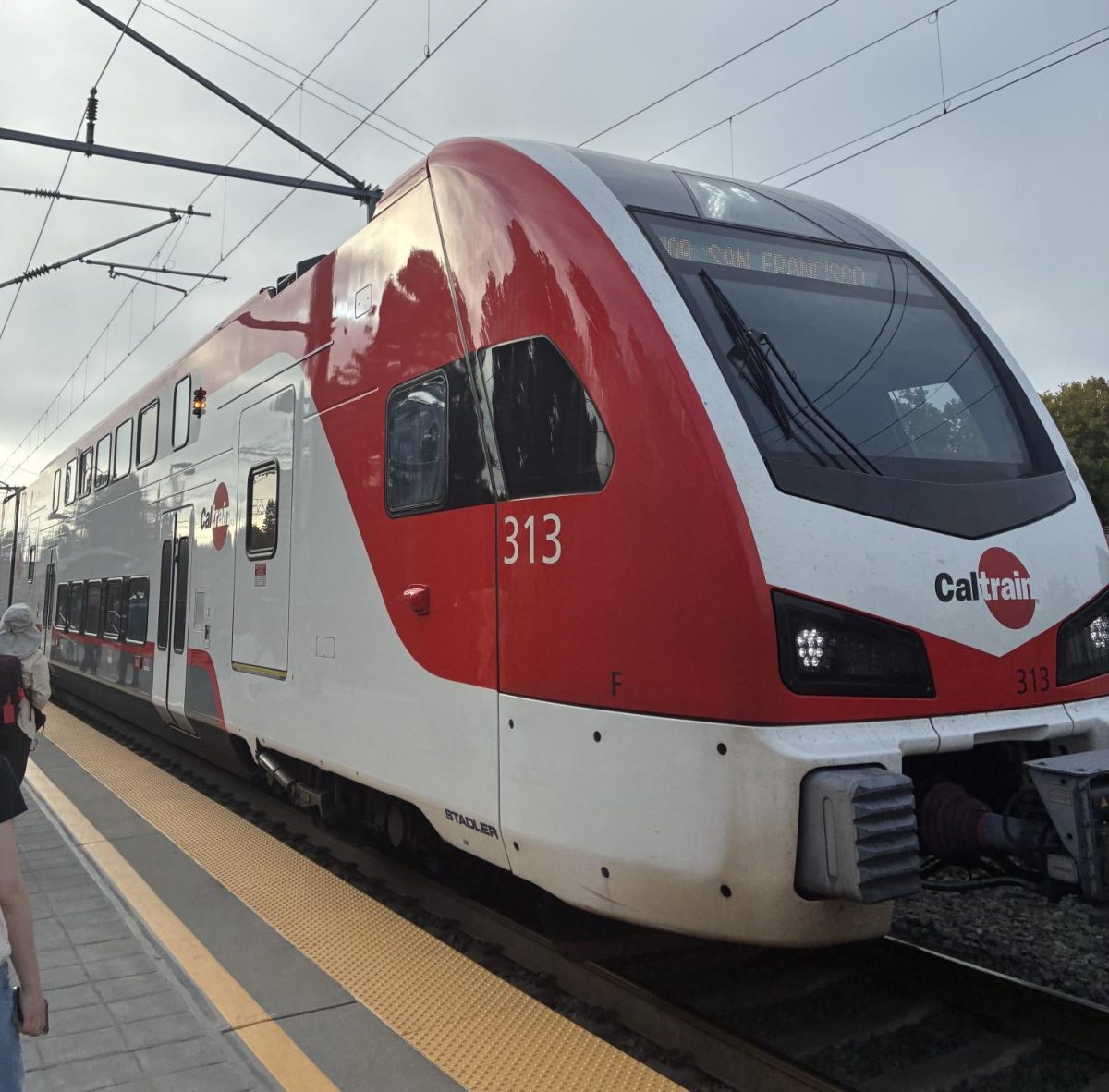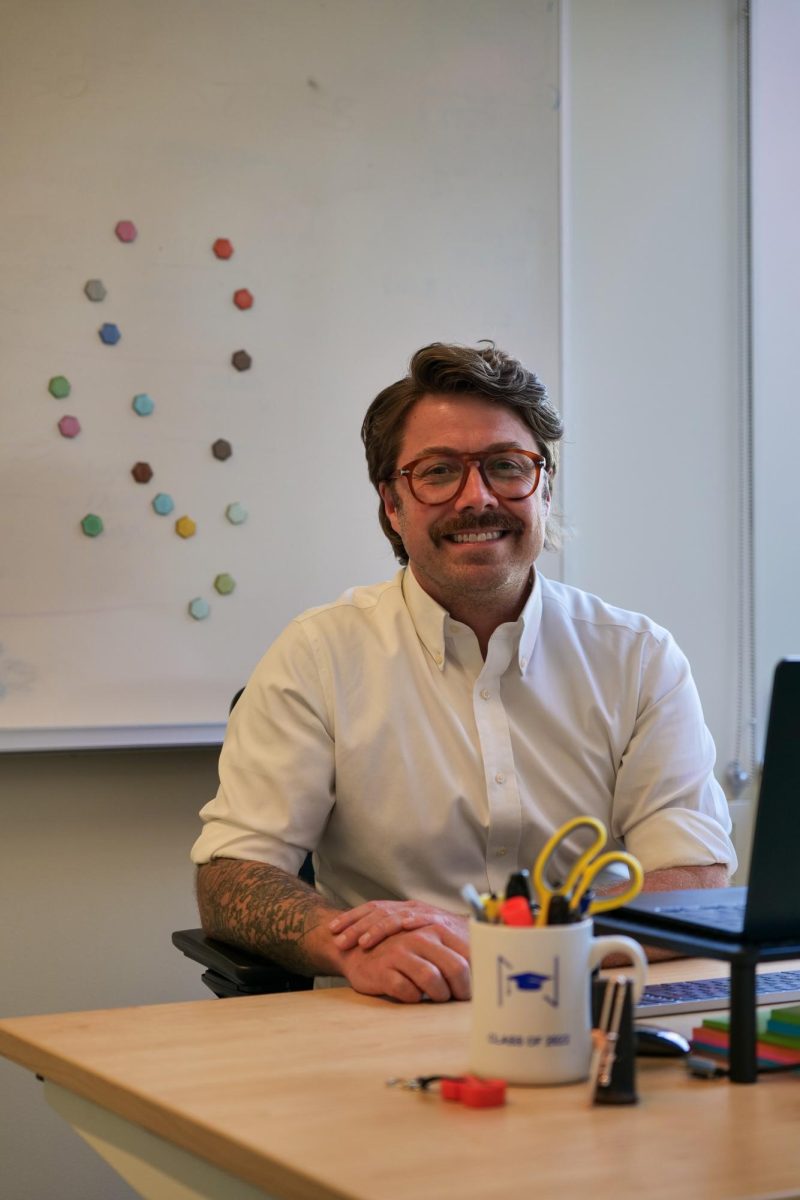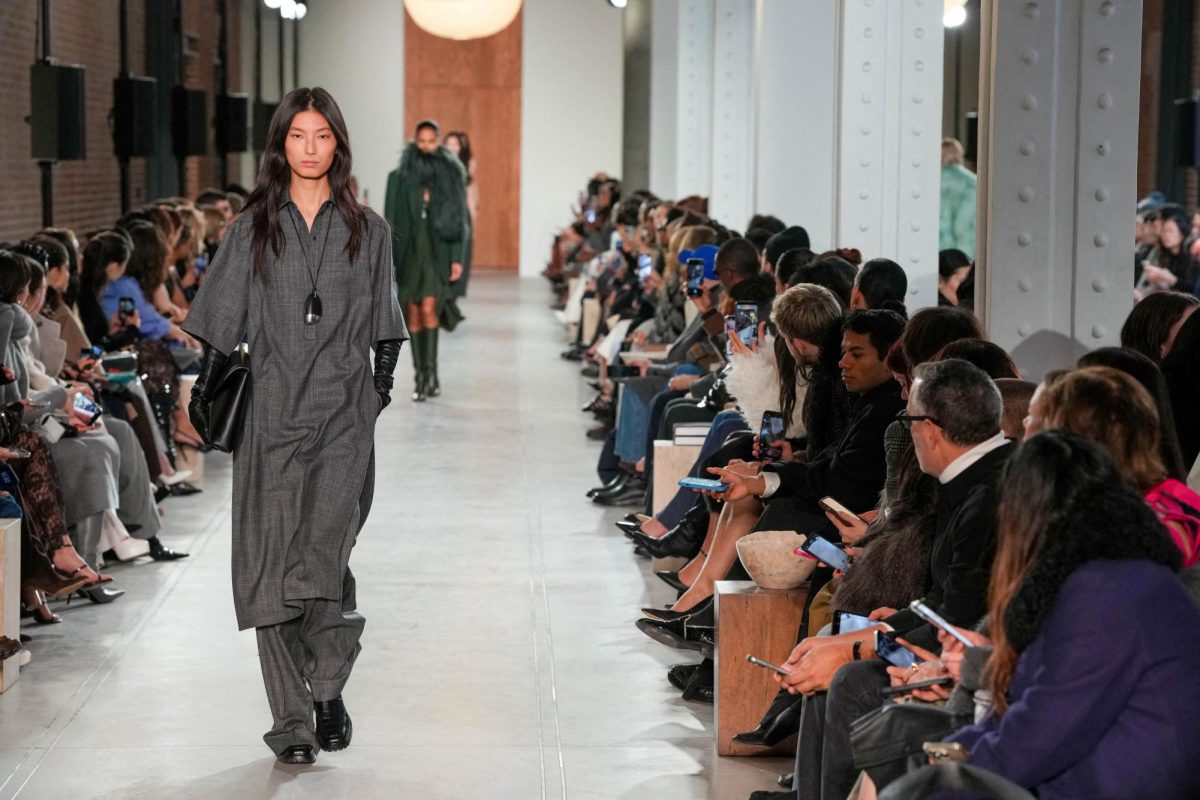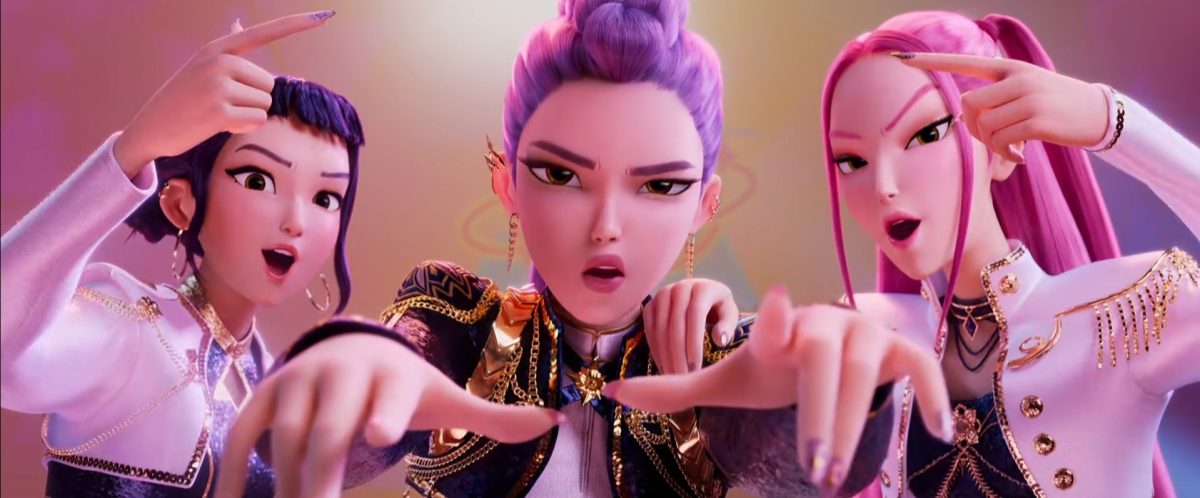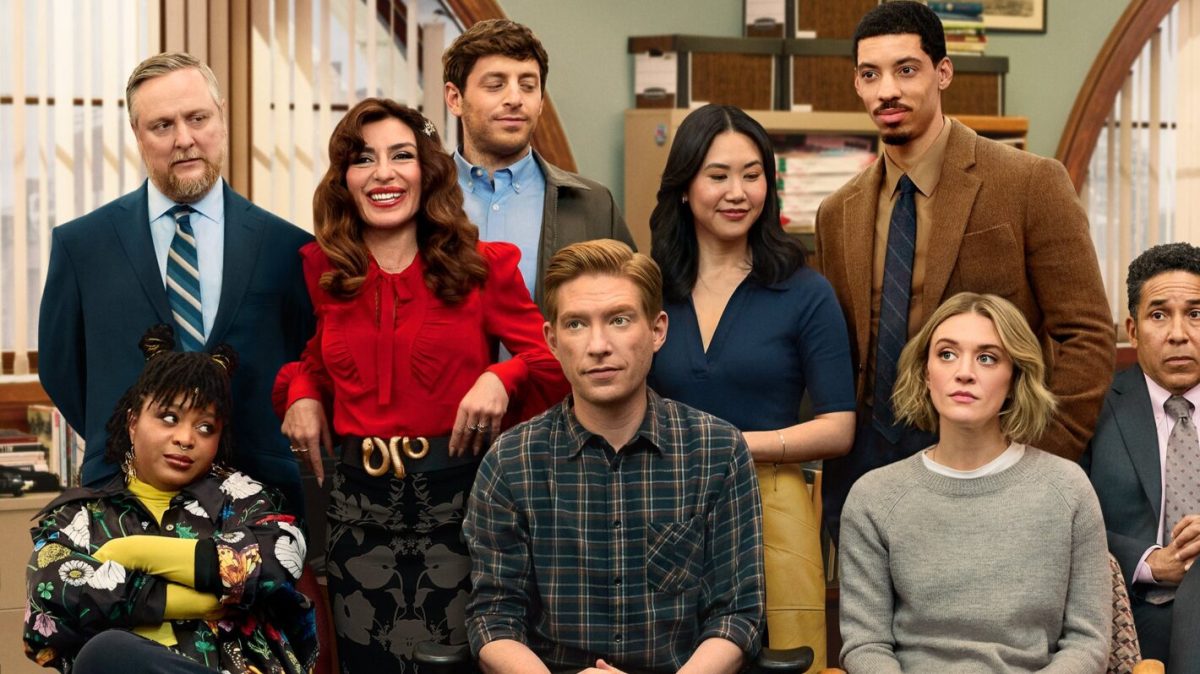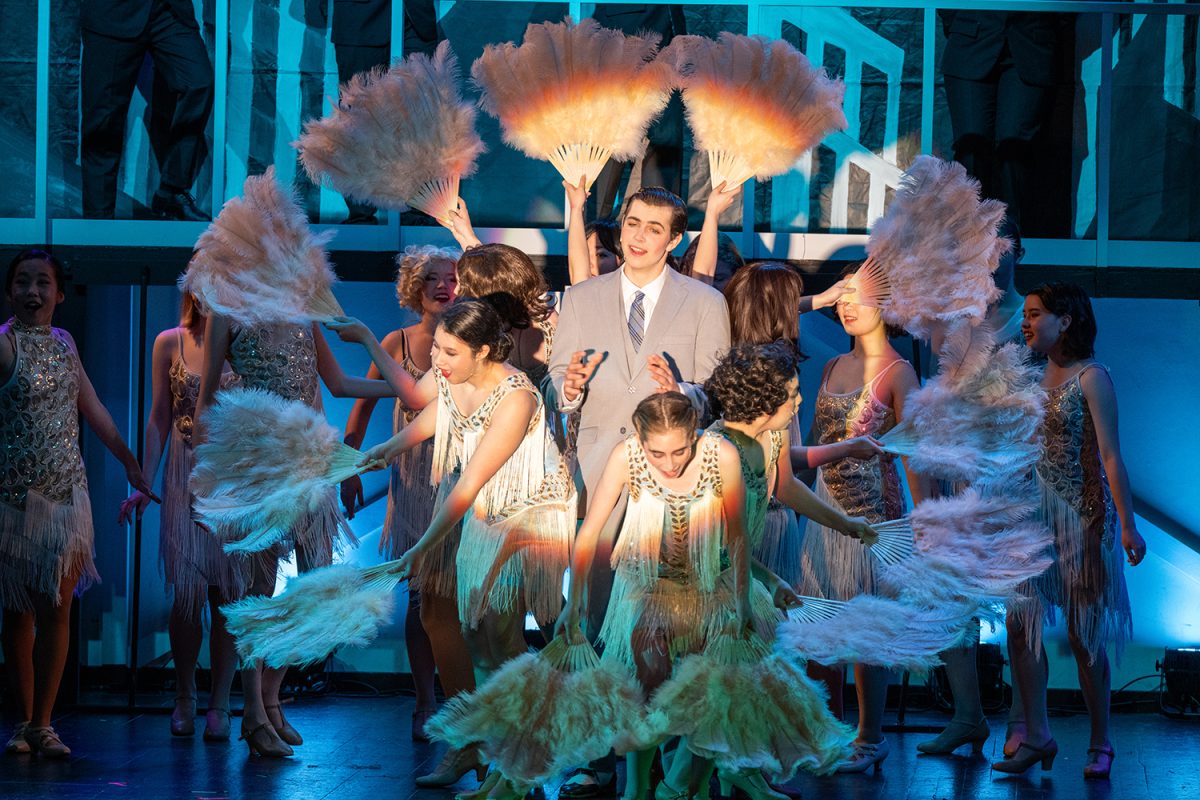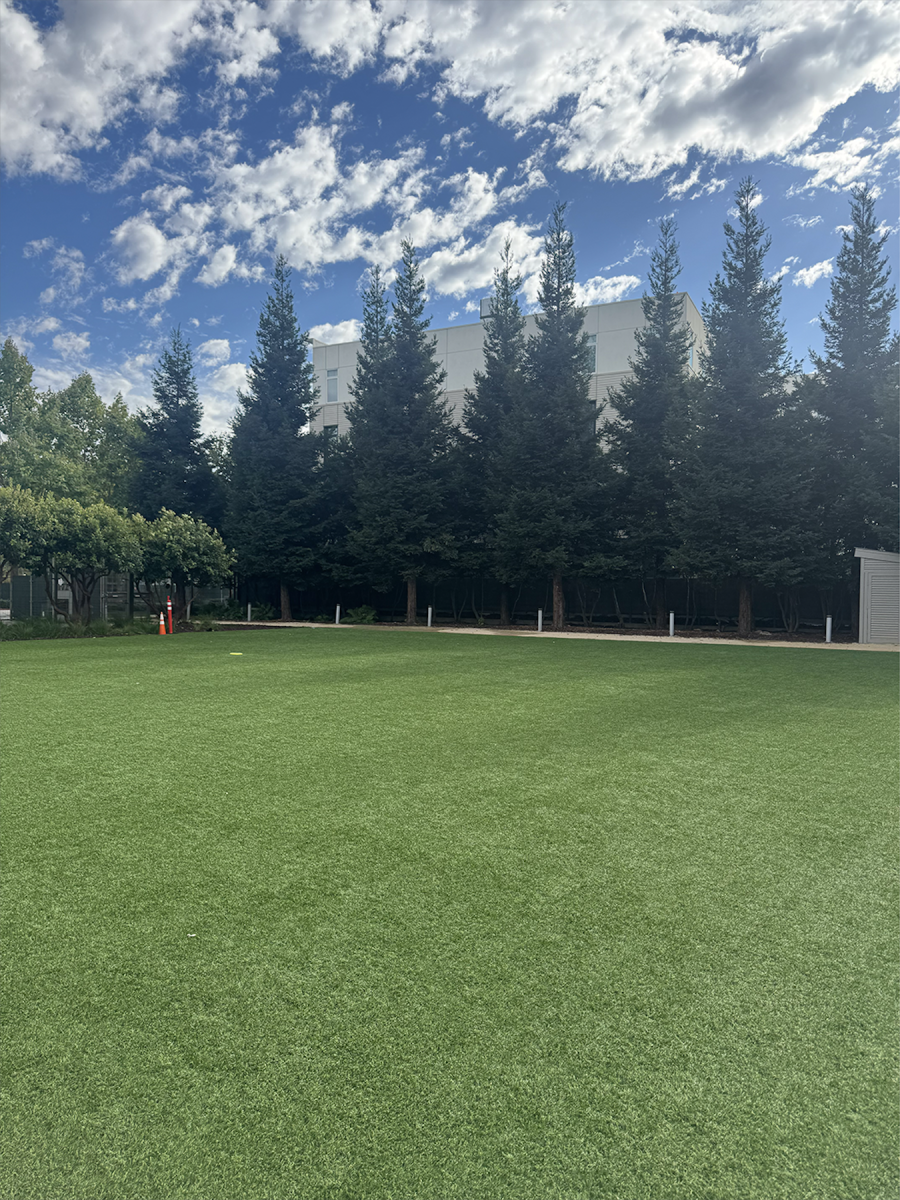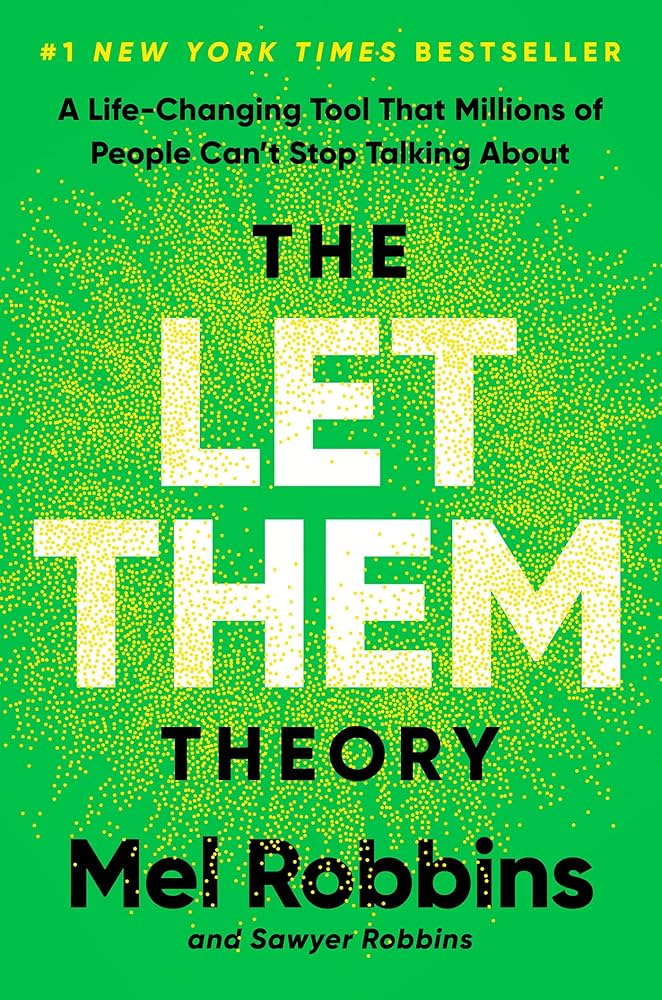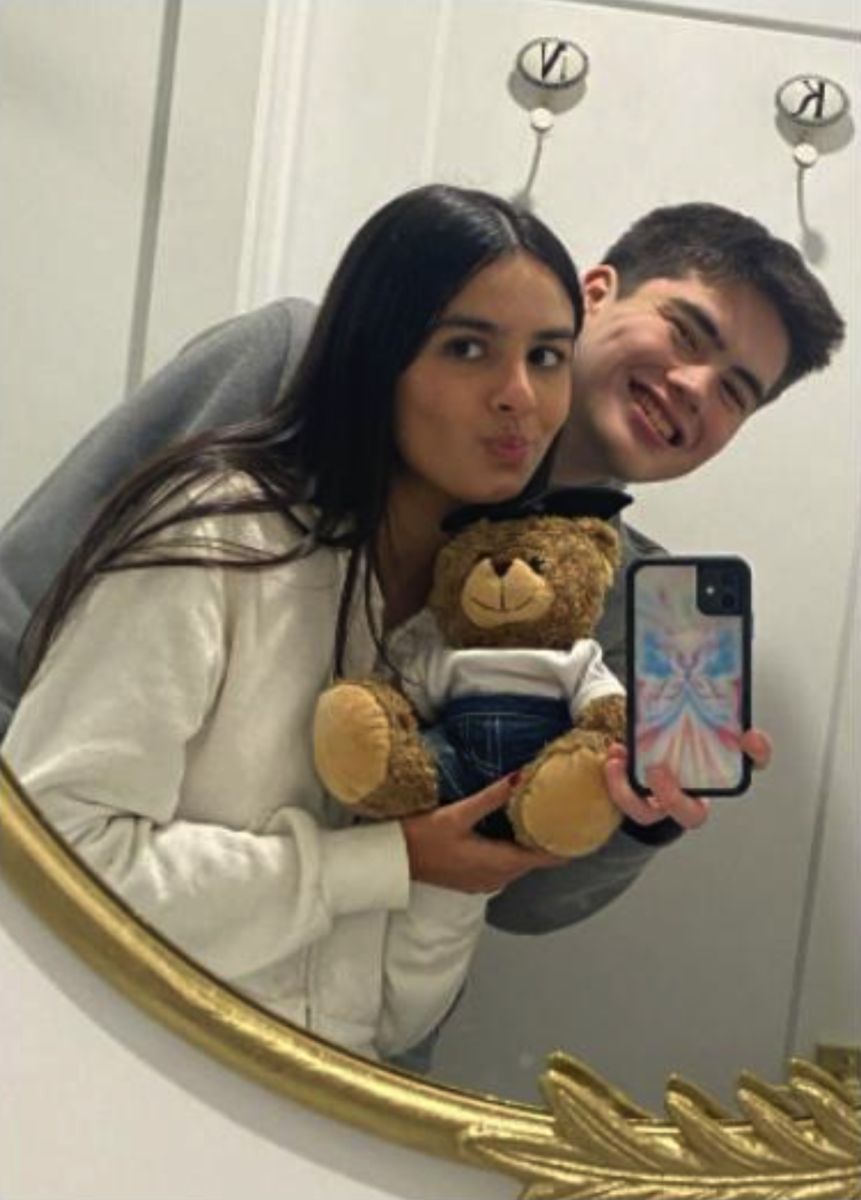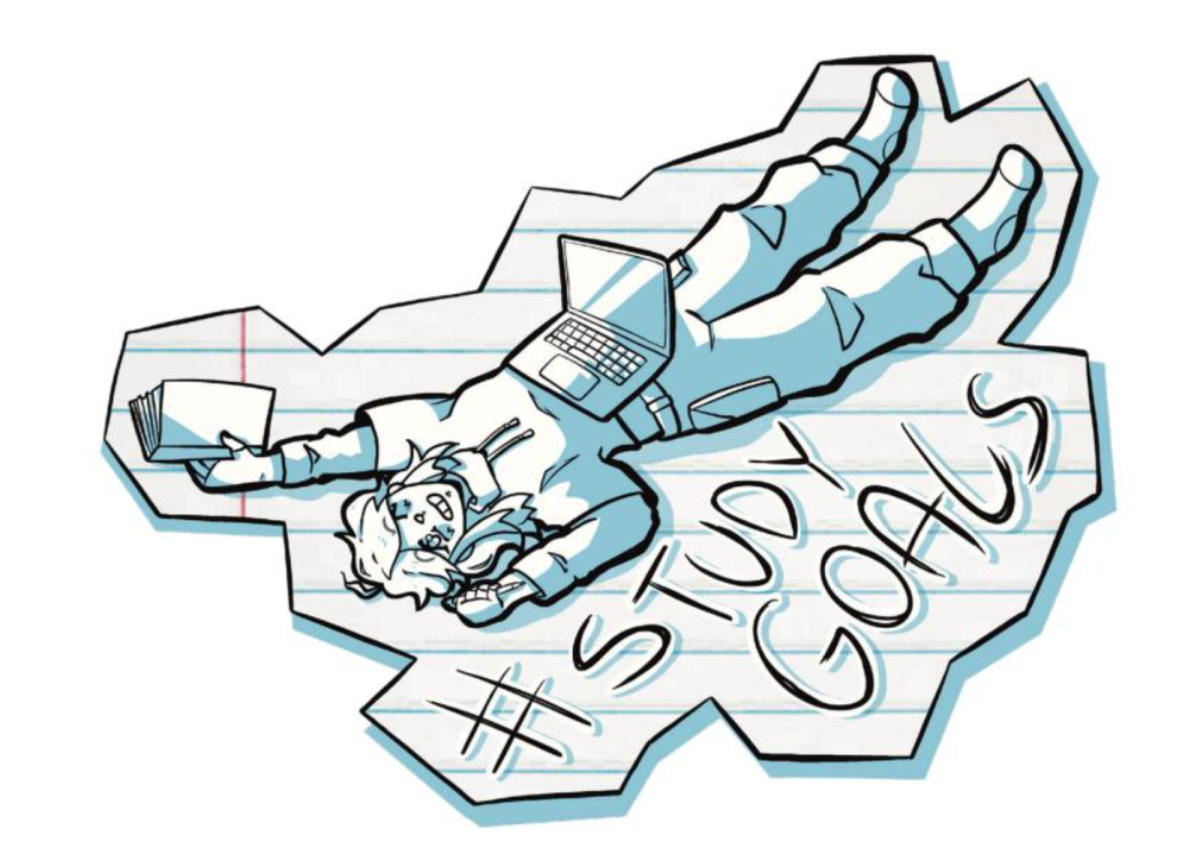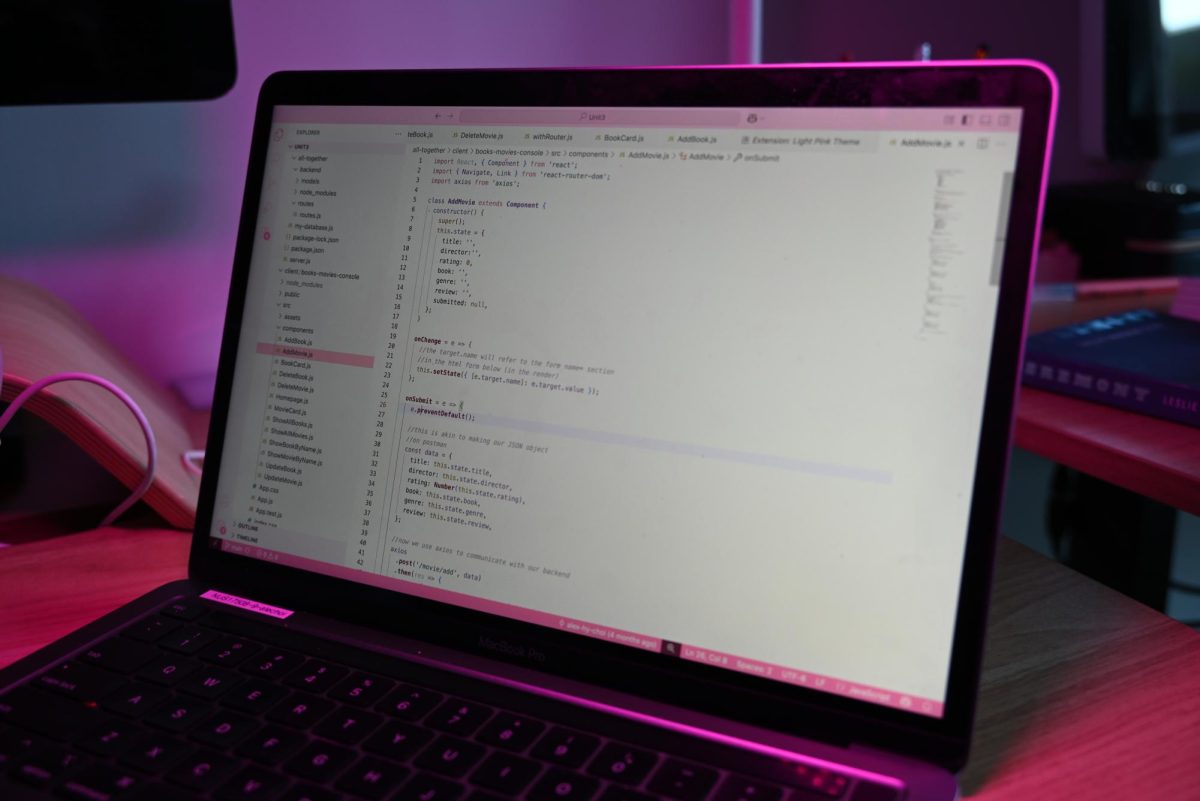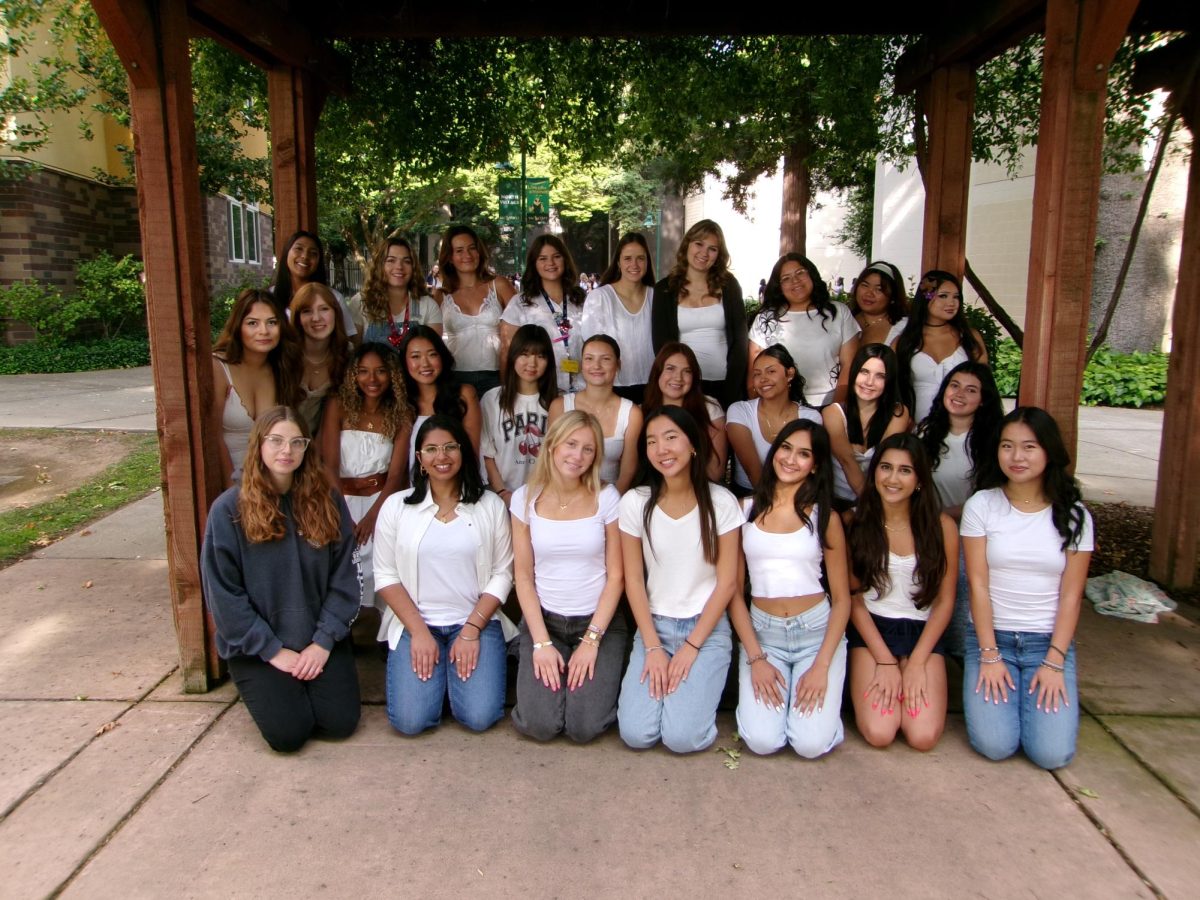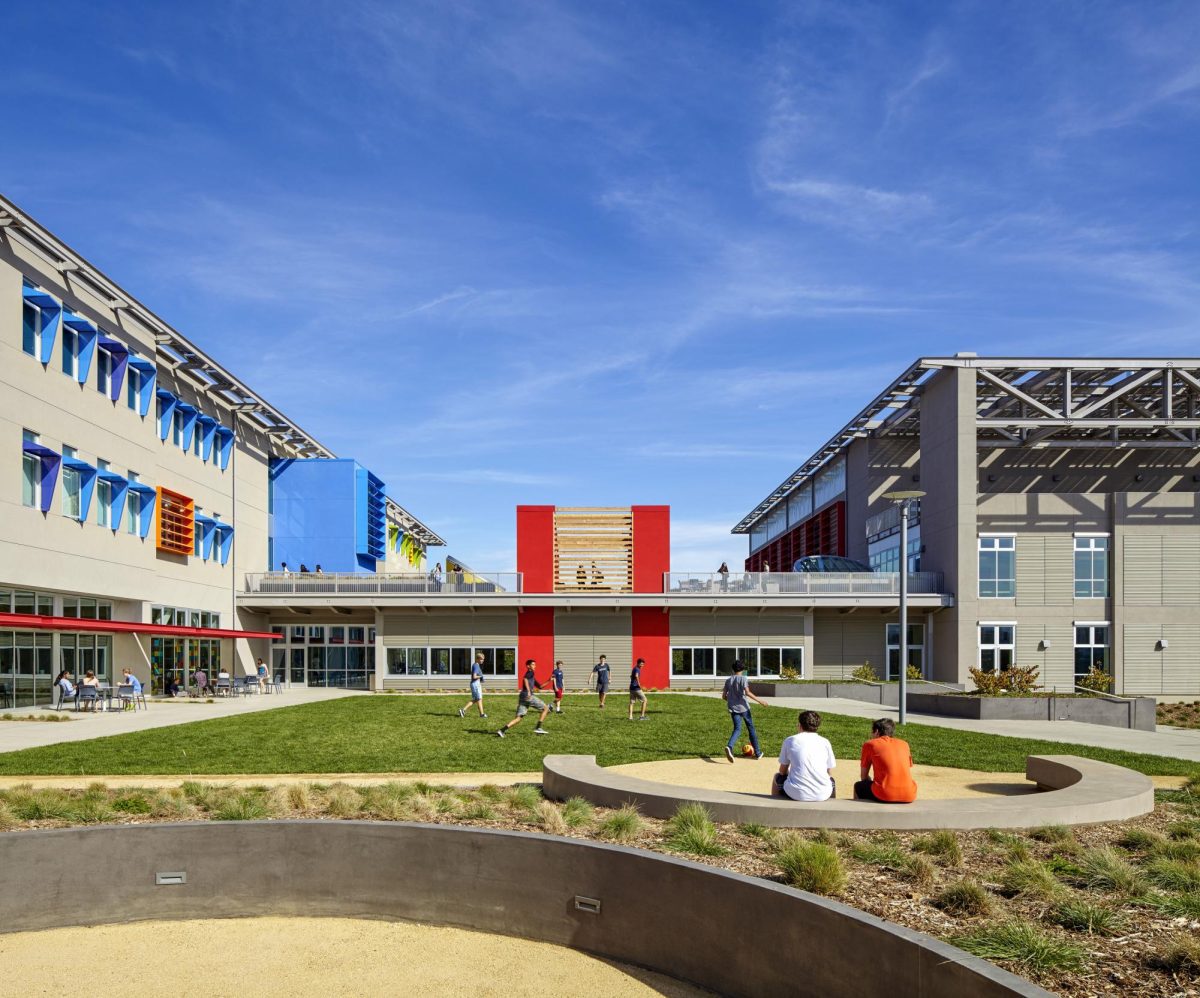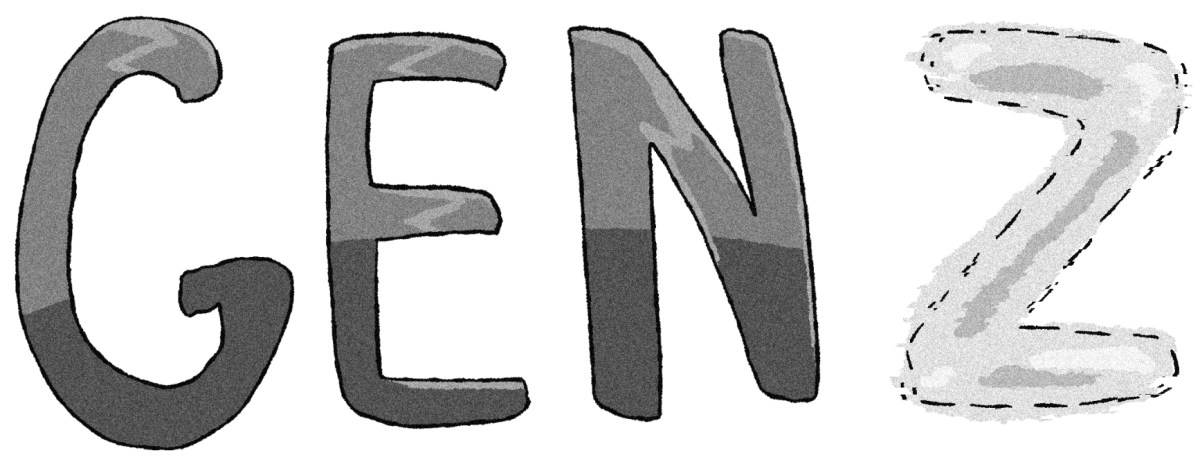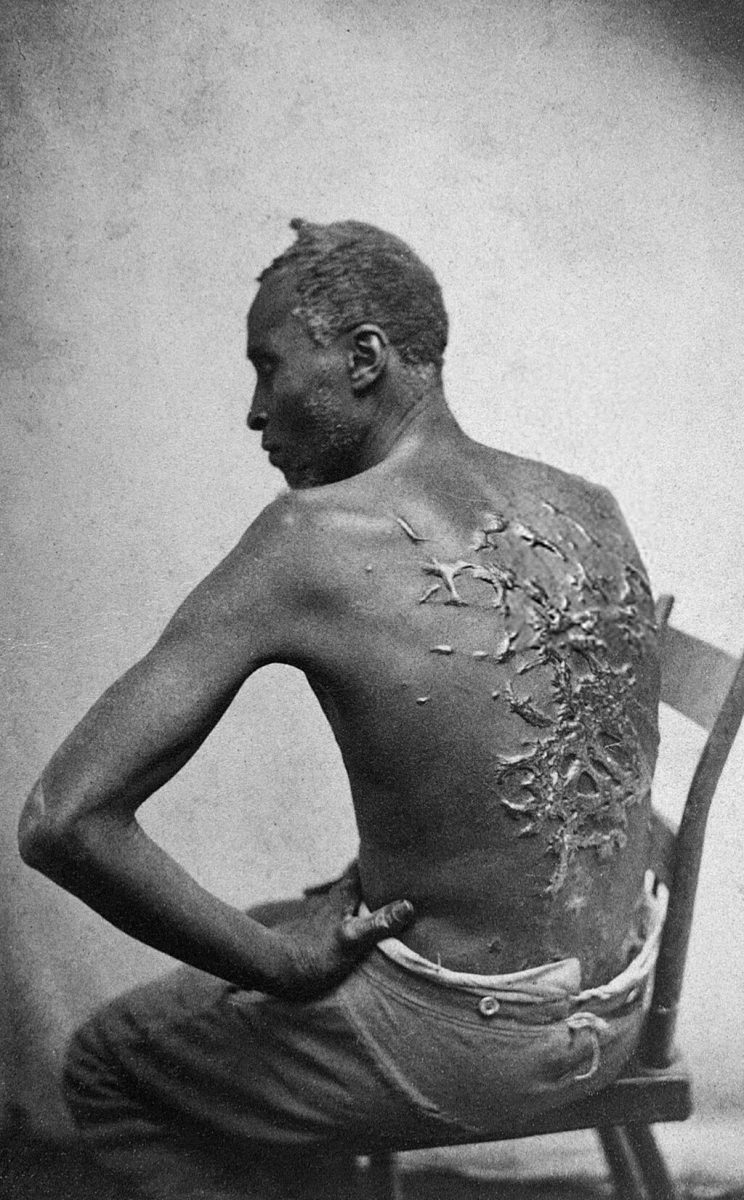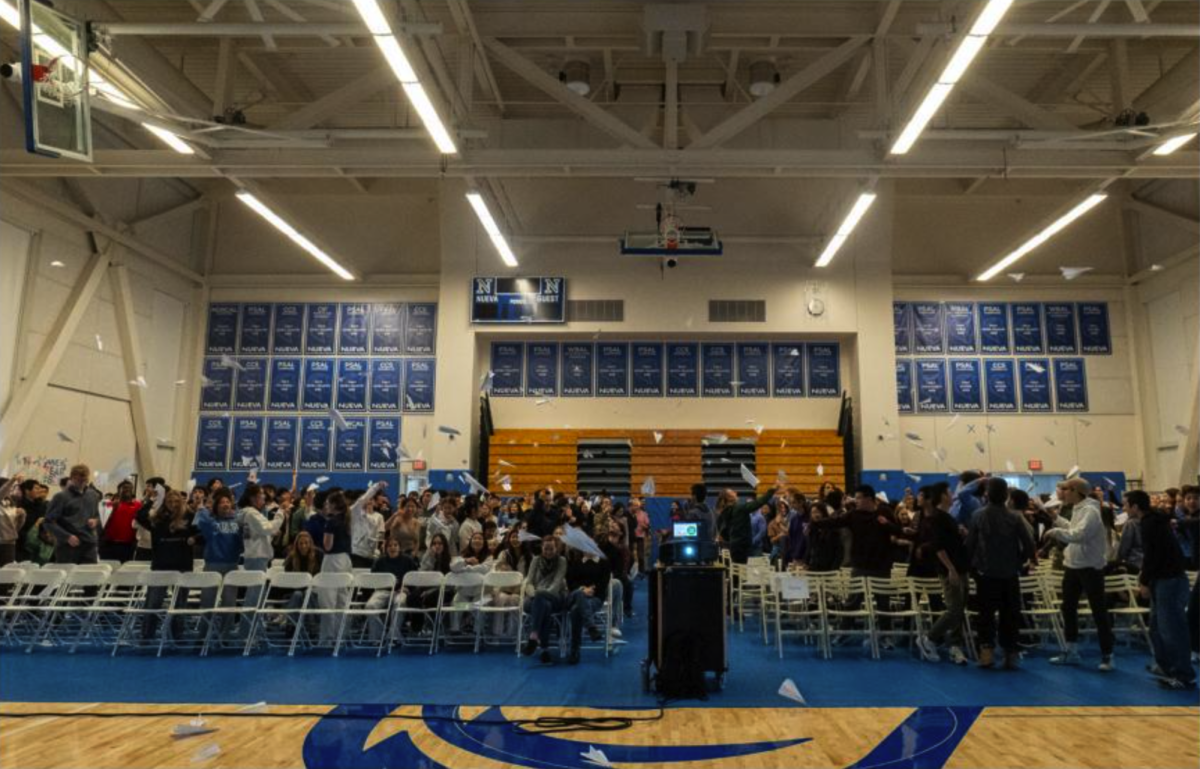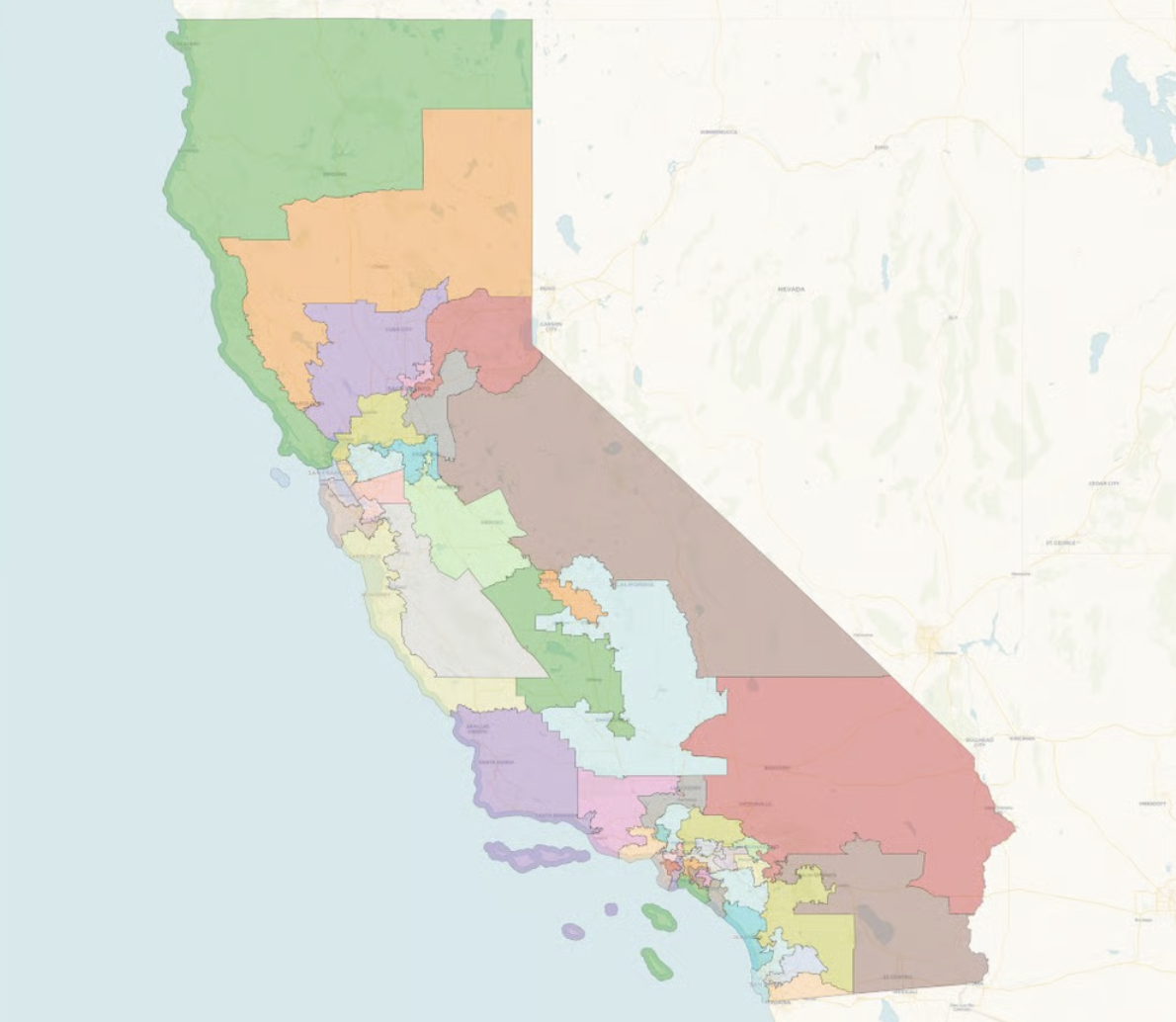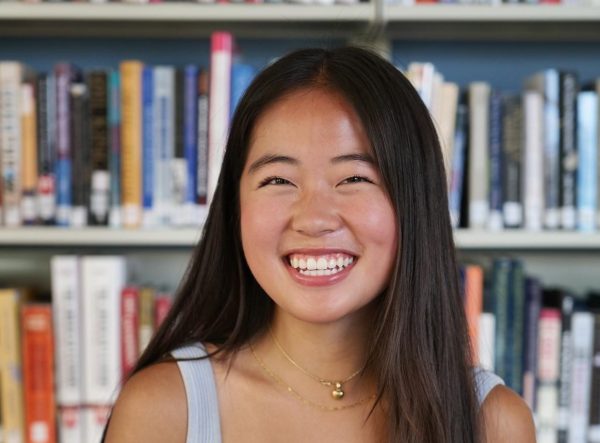Students of different grades, backgrounds, and social circles gathered in the Swellness Room for three “Tuesday Listening Lunches” last month. Led by the Peer Support Squad, they discussed a range of mental health topics that ranged from school-related anxiety to navigating depression, before finally focusing on culture and unique dynamics surrounding suicide for high schoolers.
These discussions took place in November, Nueva’s first month dedicated to suicide prevention. Then, multiple community groups—the Nueva wellness staff, student-led Peer Support Squad, and local mental health nonprofits—organized an assembly, adult training, and community conversations to initiate discussions about the stigmatized and sensitive topic.
Most students interacted with the programming at a school-wide assembly developed by the wellness team and StarVista, an organization with a mission to aid San Mateo County students and adults through counseling, education, and crisis prevention. Though StarVista regularly conducts a general presentation for high schools, counselors Sydni Marmor and Aviva Jacobstein primarily helped tailor the presentation toward Nueva students.
Marmor acknowledged that presentations can often become dry and information-heavy, so she worked actively to embed “intrinsic experiences,” tangible stories, and highly relevant information for students.
Her and Ng’s work paid off in the approximately hour-long slideshow presentation that StarVista Program Coordinator Walter Ng delivered to the school. Students were trained self-understanding, what the language to use in suicide-centered conversations, and the stigmas surrounding suicide. They also learned about non-harmful self-injury, which Marmor and Ng described as patterns of behavior such as exercising to the point of exhaustion, skipping meals, or neglecting self-care.
Marmor says that students recognizing these patterns may find power in self-reflecting and realizing that their body, mind, and emotions are telling them something. In addition, they can find support by seeking out a trusted adult.
Peer Support Squad member Rowan B. ’26 appreciated the presentation and its inclusion of relevant information like crisis hotlines.
“The reality is that lives can genuinely be at stake,” he said. “An hour of listening could give people a little more comfort or even save a life.”
Beyond the student-facing assembly, Marmor also coordinated training for adults in the community. Before the assembly, StarVista guided parents through a presentation centered around finding community resources and engaging in mental health conversations with their children. Additionally, StarVista educated teachers and staff about mandated reporting and assuming the role of a trusted adult.
“Everyone was invited,” Marmor said. “It was really important to me that [not] only a few people in the community [are] the safe ones. I want everyone in our community to be safe.”
After receiving the training the prior day, English Teacher Amber Carpenter initiated the assembly by presenting two student-submitted reflections on suicide.
November’s trainings were Carpenter’s first official experiences, at Nueva, to understand suicide as a teacher. “That was sort of a shock. Having to sort of chew on that for a minute that, ‘Oh, we haven’t talked about this.’ Why haven’t we talked about this?’” she wondered.
More mental health-related programming is expected for students and adults in the coming months. The Mental Health Advocacy Club is active in coordinating student wellness initiatives, while the Peer Support Squad will see a structural revision in the spring semester. Marmor, specifically, envisions the Peer Support Squad with a stronger campus presence that lets new and old students feel welcomed. Meanwhile, Marmor and Jacobstein are busy developing a week of programming in late February.
Overall, Rowan is happy about all of the recent student and adult-led mental health conversations at Nueva.
“We feel like with all the stigma around mental health at Nueva, it’s important to host spaces where we can talk,” he said. “It was just cool that people showed up and were there to talk about real subjects. And sometimes things got a little lighter. Sometimes things got a little heavier. But, I think it was important either way.”
